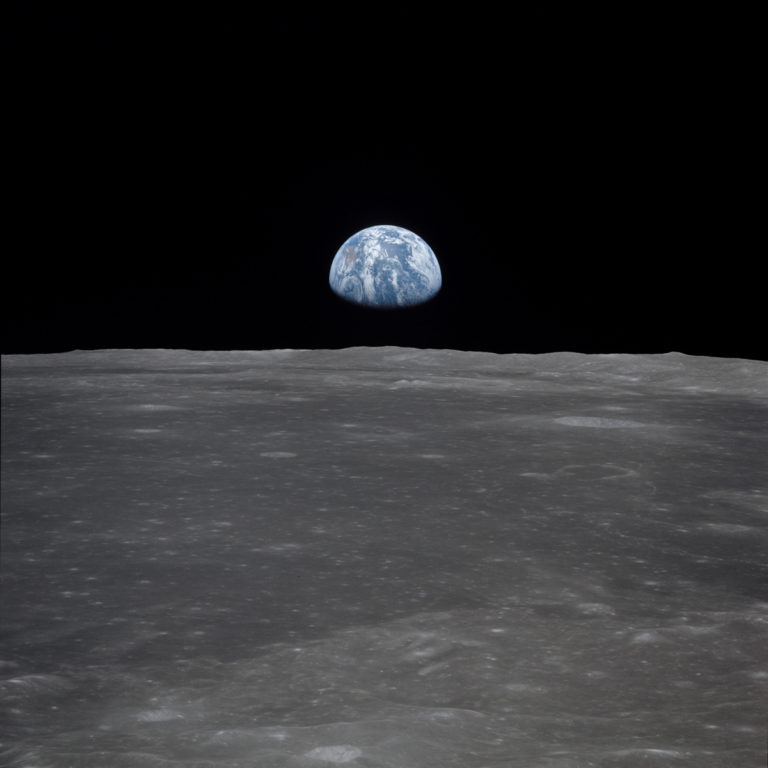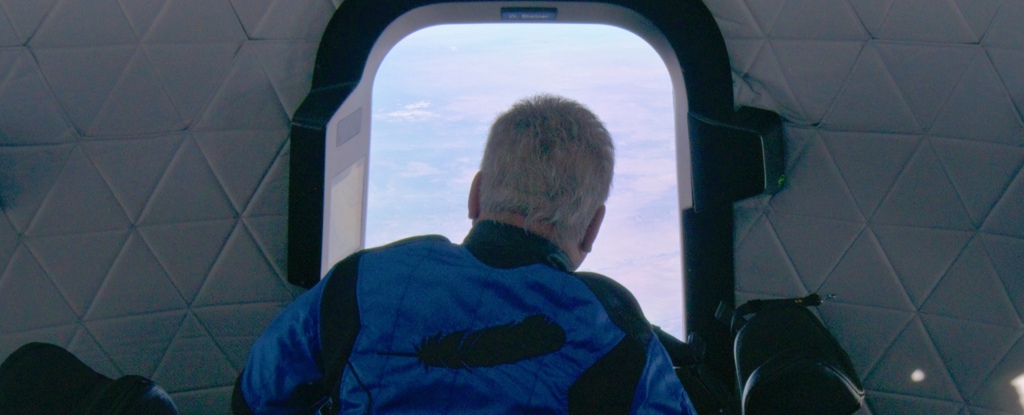William Shatner has made headlines this week with the announcement that his trip into space wasn't the celebration or high note he thought it would be – instead, it felt like a "funeral for planet Earth".
In an excerpt of his new book Boldly Go published exclusively by Variety, the former Star Trek star reveals that while he thought his trip would bring him catharsis and connection, instead he was filled with "overwhelming sadness".
"Everything I had thought was wrong. Everything I had expected to see was wrong," Shatner writes in the Variety excerpt.
"The contrast between the vicious coldness of space and the warm nurturing of Earth below filled me with overwhelming sadness.
"Every day, we are confronted with the knowledge of further destruction of Earth at our hands: the extinction of animal species, of flora and fauna . . . things that took five billion years to evolve, and suddenly we will never see them again because of the interference of mankind. It filled me with dread. My trip to space was supposed to be a celebration; instead, it felt like a funeral."
His words have since gone viral – and they're a poignant example of the so-called 'overview effect' at play: the impact that going to space and seeing Earth from afar as one, whole, fragile system has on a person. And Shatner certainly isn't the first person to experience it.
In his 2015 book The Orbital Perspective, retired NASA astronaut Ron Garan explained he'd also been filled with sadness during a 'Windshield Wiper' maneuver that sent him in an arc over the International Space Station back in 2008.
"As I approached the top of this arc, it was as if time stood still, and I was flooded with both emotion and awareness," Garan wrote.
"But as I looked down at the Earth – this stunning, fragile oasis, this island that has been given to us, and that has protected all life from the harshness of space – a sadness came over me, and I was hit in the gut with an undeniable, sobering contradiction."

The Earth photographed from the Moon during the Apollo 11 mission, 20 July 1969. (NASA/JSC)
His sadness centered on the inequality on Earth, and the millions of people without access to clean water or food security.
"In spite of the overwhelming beauty of this scene, serious inequity exists on the apparent paradise we have been given," he explained.
Edgar Mitchell, the sixth person to walk on the Moon, famously echoed a similar sentiment after his time in space.
"From out there on the moon, international politics look so petty. You want to grab a politician by the scruff of the neck and drag him a quarter of a million miles out and say, 'Look at that, you son of a b*tch," he said.
In a 2020 interview with The Irish Times, former astronaut Chris Hadfield also told Róisín Ingle that his 4,000 hours in space had given him unparalleled perspective on the planet and "the eternity of time".
"The current major threat isn't asteroids or solar flares. It's us," said Hadfield.
"Our population has been so successful, and we are modifying the environment so significantly, that we are changing the chemistry of the atmosphere so it doesn't let the Sun's energy get back out to space so we are warming the planet measurably."
The term 'overview effect' was first coined by author Frank White in 1987. In addition to the perspective it offers astronauts, it also provides them with a desire to take better care of our home planet.
"Anyone living in a space settlement… will always have an overview. They will see things that we know, but that we don't experience, which is that the Earth is one system," says White in a video called 'Overview' produced by Planetary Collective.
"We're all part of that system, and there is a certain unity and coherence to it all."
< View the video at the source page. >
But the upside of the 'overview effect' is that with the sense of profound sadness also comes hope: the realization that we are all one and the planet is incredibly resilient, having survived solar flares, asteroid strikes, and even a massive impact that spawned our Moon.
In 2018, a survey of 39 astronauts and cosmonauts found that their perceptions of Earth were measurably changed following visits to space.
"The Earth was viewed as a beautiful, fragile object to be treasured," psychiatrist Nick Kanas who led the research wrote in his 2020 paper.
"Changes in this perception significantly correlated with a statement that suggested that the respondents became involved in environmental causes after returning home."
This line from #DontLookUp perfectly encapsulates what is special about Earth, and why we should fight for it. Evolution of intelligent life requires a planet that's continuously habitable for 3 or 4 billion years. That such a planet exists is a miracle.https://t.co/8sWqpXcg2n pic.twitter.com/VsarHgCFCr
— David Ho (@_david_ho_) December 26, 2021
Researchers on Earth are now working hard to try to find a way to recreate the 'overview effect' for those of us who will likely never go to space.
The hope is that in giving the world a broader perspective, we just might find a way to come together to protect the one, small home we have in the vastness of space.





Recommended Comments
There are no comments to display.
Join the conversation
You can post now and register later. If you have an account, sign in now to post with your account.
Note: Your post will require moderator approval before it will be visible.